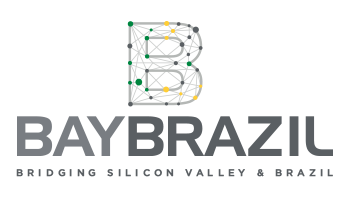Investments in online education technologies in the U.S. hit a record $1.36 billion, up from $1.2 billion in 2013, aimed largely at Silicon Valley companies such as Coursera. The company just launched a series of new courses in Brazil, its third largest market outside the U.S. In a conversation with BayBrazil, Stéphanie Durand, Coursera’s Market Development Manager for LatAm and Europe, talks about the company’s strategy and her vision on edtech’s role to equalize education.
BayBrazil: You just launched a series of new courses for the Brazilian market. Tell us about the courses and how they help Coursera’s expansion in Brazil.
Stephanie: This week, we launched Coursera’s first ever native Portuguese courses from Brazil’s top educational institutions. Our Portuguese speaking learners now have access to free, career relevant courses from USP, UNICAMP, and the Lemann Foundation. Five courses focus on subject areas like engineering, accounting, and teaching. We believe that this content will help Brazilians acquire the skills they need for their careers.
This is a huge move towards breaking traditional walls in the delivery of content in Brazil. Brazil’s top institutions are now making some of their best content entirely available, for free, to anyone in the world.
We also launched our first fully translated courses in Portuguese, one called Successful Negotiation: Essential Strategies and Skills from University of Michigan and the other from UC San Diego, Learning How To Learn, a course that explores how the brain absorbs information, helping you to understand how to improve your own learning habits in everything you do.
BayBrazil: Who are Coursera’s partners in Brazil and what are their roles?
Stephanie: We have three major types of partners in Brazil. The first are academic partners, like USP or UNICAMP, which produce courses that we host on our platform. Today Coursera counts 120 partners from over 20 countries and we are very proud to have onboarded our first Brazilian partners last fall. We expect more to join in the coming months.
The second type of partners are on the ground organizations or foundations invested in education, which provide Coursera with significant support on translations, outreach, events, etc, for instance the Lemann Foundation, our major partner in Brazil. Finally, we work with a wide range of distribution partners, which engage with us because they believe in our mission to offer the world’s best courses and want to help us increase our reach. Those are usually educational sites, job sites, or mobile carriers. We will be announcing exciting new partnerships later this month.
BayBrazil: How do you expect Brazilians will access your courses, desktop x mobile?
Stephanie: Brazil’s population is 200 million, and counts more than 240 million SIM connections! Brazil literally outperforms the world in terms of mobile penetration. We want to offer our content to as many Brazilians as possible, including on mobile. We are doing our best to offer a great app to Brazilians, both on iOS and Android, that people can use during their commute time for instance to learn anywhere, at anytime. Whatever the device, we want to make the experience as localized as possible.
BayBrazil: How did Coursera decide when to launch in Brazil? What was your strategy for the launch?
Stephanie: As I said, we announced our first partners in Brazil last September. There was tremendous enthusiasm from our new partners to join Coursera, and we decided to organize a great event in Sao Paulo with the presence of all of our partners, learners and translators. We even had the honor to have Jorge Paulo Lemann as a keynote speaker. The level of interest and support was more than what we could have ever imagined. This allowed us to give our partners a great platform for dialogue about important issues around education and skill gaps.
BayBrazil: Could you share some statistics about your progress in Brazil and other LatAm markets?
Stephanie: Brazil is our third largest market outside the US after China and India. We count half a million registered users today. We also notice that Brazilians really like the Verified Certificates we offer – the conversion rate is two to three times higher than in other emerging economies. We think that there is a great product market fit in Brazil, where there still is limited access to high quality education and a huge appetite for taking free courses both to advance one’s career, and out of love of learning.
BayBrazil: What is role of online learning to equalize education in developing nations versus top performing South Korea and Japan?
Stephanie: About 75 percent of our learners already have a higher education degree. This is partially due to the fact that Coursera launched just a few years ago and early adopters of any technology platform tend to have a similarly highly educated profile. More importantly, this tells us that online education has a major role to play throughout people’s lives. It’s no longer enough to get a degree before you start your career. In fact, we see especially high demand for skills based courses in developing and emerging economies where a third of our learners come from.
Our mission is to provide universal access to the world’s best education, and we develop our products with all the world’s possible learners in mind. We hear every day from people of all circumstances from around the world who tell us how the knowledge and skills they’ve gained through Coursera has changed their lives. We believe that online education can act as a real equalizer for people who would otherwise never have such educational opportunities.








